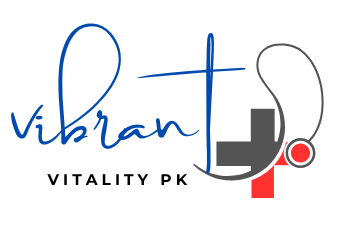The Rise of Personalized Nutrition: Unlocking the Power of Your Unique Biochemistry through 5 Evens
Personalized Nutrition

In the ever-evolving landscape of health and wellness, a groundbreaking concept of personalized nutrition is gaining traction. This personalized nutrition approach recognizes that one-size-fits-all diets simply don’t work for everyone. Instead, personalized nutrition champions the idea that the optimal nutritional plan for each individual is as unique as their DNA.
Personalized nutrition address the fact that every individual reacts differently to different food varieties for instance, lot of people do not properly respond to diets which comprised on carbohydrate or fats which leads towards certain metabolic diseases.

Therefore, personalized nutrition device individual nutritional recommendations to better asses and quantify nutrition depending upon one need.
Personalized nutrition is founded on the principle that our genetic makeup, metabolic profile, and lifestyle factors all play a crucial role in determining our unique nutritional needs.
By delving into the intricacies of our individual biochemistry, this innovative field aims to provide tailored dietary recommendations that can help us achieve our health goals more effectively than generic, “cookie-cutter” nutrition advice.
The Science behind Personalized Nutrition
At the heart of personalized nutrition lies the understanding that our bodies respond differently to various nutrients, depending on our genetic predispositions. For example, some individuals may be more sensitive to carbohydrates or have a higher requirement for certain vitamins and minerals due to their genetic makeup.
Advances in genetic testing and nutrigenomics, the study of how genes and nutrients interact, have enabled researchers to uncover these individual differences.
By analyzing an individual’s genetic profile, healthcare professionals can identify specific genetic variants that influence factors like metabolism, nutrient absorption, and the body’s response to different foods.
This knowledge allows them to create a personalized nutrition plan that takes into account the unique needs of the individual, rather than relying on a one-size-fits-all approach. For instance, someone with a genetic predisposition to lactose intolerance may benefit from a diet that avoids dairy products, while another individual may thrive on a higher-protein regimen due to their genetic makeup.
The Benefits of Personalized Nutrition
The adoption of personalized nutrition has the potential to revolutionize the way we approach our health and wellness. By tailoring dietary recommendations to an individual’s unique biochemistry, this approach offers a wealth of benefits:

Improved Health Outcomes:
By addressing individual nutritional needs, it can help prevent or manage a wide range of health conditions, from chronic diseases like diabetes and heart disease to autoimmune disorders and neurological issues.
Enhanced Weight Management:
Personalized nutrition plans can provide more effective guidance for weight loss or maintenance by taking into account an individual’s metabolism, hormonal profile, and genetic predispositions to certain weight-related factors.
Increased Nutrient Absorption:
Such plans can optimize the body’s ability to absorb and utilize essential vitamins, minerals, and other nutrients, ensuring that the individual’s nutritional needs are met more effectively.
Reduced Risk of Adverse Reactions:
By identifying individual sensitivities or intolerances to certain foods or nutrients, it can help individuals avoid potentially harmful reactions and improve their overall well-being.
Enhanced Athletic Performance:
For athletes and fitness enthusiasts, it can help optimize nutrient intake, fuel metabolism, and support muscle recovery and growth, leading to improved athletic performance.
Implementing Personalized Nutrition
Implementing a personalized nutrition approach typically involves several key steps:

Comprehensive Assessment:
The process begins with a detailed assessment of the individual’s health history, lifestyle factors, and genetic profile through tests and questionnaires.
Nutrient Optimization:
Based on the assessment, a nutrition plan is developed, which may include recommendations for specific macronutrient ratios, micronutrient supplementation, and dietary adjustments to address any identified imbalances or deficiencies.
Ongoing Monitoring and Adjustment:
The personalized nutrition plan is closely monitored, and adjustments are made as needed to ensure the individual’s nutritional needs are continuously met and their health goals are achieved.
Personalized Guidance and Support:
Throughout the process, individuals work closely with healthcare professionals, such as registered dietitians or nutritionists, who provide personalized guidance, education, and support to help them navigate the its journey.
The Future of Personalized Nutrition
As our understanding of the human genome and the complex interplay between genes, environment, and nutrition continues to evolve, the promise of such nutrition grows ever stronger. In the years to come, we can expect to see even more advanced technologies and tools that can further refine and personalize dietary recommendations, leading to even more precise and effective interventions.
Additionally, the integration of it with other emerging fields, such as artificial intelligence and machine learning, has the potential to create truly customized, data-driven nutrition plans that adapt to an individual’s changing needs over time.
Embracing the Power of Personalized Nutrition
In a world where our individual differences are increasingly recognized and celebrated, the rise of personalized nutrition represents a significant shift in the way we approach our health and well-being. By harnessing the power of our unique biochemistry, this innovative approach holds the key to unlocking optimal health, vitality, and performance, tailored to the individual.
As we continue to explore the frontiers of it, the future of healthcare and wellness becomes ever more personalized, empowering each of us to take a more active and informed role in shaping our own health journey. The time has come to embrace the power of it and unlock the full potential of our bodies and minds.
Conclusions
Personalized nutrition as name signifies implies upon and emphasize on individual’s nutritional requirements. As most of the people require certain amount of nutrition in relation to their health conditions. It means there is not a single formula to address nutritional requirement of people.
It is helpful in gaining optimal weight through proper weight management and it ensures optimal health and overall wellbeing.
Furthermore, it increases physical endurance and enhances athletic performances along with better nutritional absorption which ultimately boost health and immunity.
It is not only beneficial in gaining optimal health but also helpful in avoiding certain metabolic diseases along with obesity, heart diseases and type-2 diabetes.
FAQs
What is personalized nutrition?
It champions the idea that the optimal nutritional plan for each individual is as unique as their DNA.
Is personalized nutrition beneficial for all?
Yes
How to implement personalized nutrition?
Through proper planning, screening and identification of nutritional requirements






